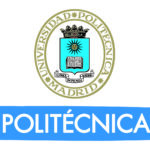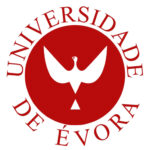
About
Summary
JALON brings a new approach to facilitate the emergence and growth of citizen-led energy community projects throughout Europe. The methodology is rooted on the close collaboration of local stakeholders to bring these projects into operation as an instrument of social innovation, especially for rural regions where there is a lack of specific legislation adapted to their own reality and specific needs which could cause them to be left behind in the energy transition. In fact, there are so many hurdles that prevent energy communities around Europe from developing their full potential and especially in rural areas.
JALON proposes to run a large-scale regional energy community engaging 5,000 citizens, 40 local authorities and 75 business to really empower EU inhabitants in rural areas and local stakeholders towards the achievement of a solution suitable to their expectations and needs. This challenges the classic approach, moving from the energy community seen as something to be socially accepted and promoted to the energy community as an instrument to solve local social needs, requested by the people.
87 rural villages in Spain will cooperate in a large energy community that will promote legal and regulatory changes, in a learning-by-doing way, to achieve energy communities which will really be a useful instrument for the local development of depopulated areas.
The project aims at mobilizing 13M€ to invest in photovoltaic-energy facilities with a total generation of 23GWh/year, avoiding 3,452 tonCO2e emissions/year. JALON will be the demonstrator that will be followed by other 6 EU regions, committed to developing an implementation plan during the project together with JALON partners, so that they can start to act quicker. In addition, dissemination and communication actions are addressed to reach 82 underdeveloped (NUTS3) regions and promoting the key results of JALON to foster the replication of this approach across the EU.
Objectives
Jalón is the name of the river crossing from the West to the East the whole rural Calatayud Region (Zaragoza, Spain). Jalón is also the translation into Spanish of the term milestone. Thus, the name of the proposal is already representing the global objective of the project:
To set a new starting point in the operationalization of energy communities by creating a large- scale regional energy community in the Calatayud region directly promoted by citizens and local authorities from 87 villages to respond to the social expectations and needs.
To reach the global objective of the project, specific objectives were defined. The rationale of the specific objectives follows the sequence “engagement to the identified problems” → “solution via a regional energy community” → “replication of the solution”, as shown in the following figure:

The specific objectives are the following:
- To empower rural areas as hubs of social innovation engaging 5,000 citizens, 40 municipalities and 75 businesses to the energy transition and the fight against depopulation;
- To achieve collaboration between citizens and local and regional authorities to create a demonstrator of a large regional energy community in the Calatayud region;
- To turn the Calatayud region into a European reference for regional energy communities to be massively replicated inspiring public policies, legal and regulatory environments to be improved.
Consortium


Universidad Politécnica de Madrid (UPM) – ES (coordinator)
- Website: www.ies.upm.es
Universidad Politécnica de Madrid (UPM, Technical University of Madrid) is the largest Spanish technological university. With two recognitions as Campus of International Excellence, it is outstanding in its research activity together with its training of highly-qualified professionals, competitive at an international level.
The Instituto de Energía Solar is a research centre within UPM. It is an institution linked to R&D activity since the 1970s. It was founded by prof. Antonio Luque, one of the most recognized figures in photovoltaic science in the world. It has participated in the
development of solar cells since 1974 and currently keeps a staff of more than 50 people, all of them related with research into photovoltaics.
The main research areas are silicon cell technology, concentrating PV, optics, photovoltaic systems, and more advanced and fundamental concepts. The IES-UPM has a wide-ranging experience in coordinating EC projects in various fields of PV research: 2nd FP (MONOCHESS); 3rd FP(PV-EYE, MONOCHESS II); 4th FP (SICOCELLS, HERCULES, EUCLIDES); 5th FP (MIBCELL, PVFIBRE, TWINGO, C-RATING, IDEOCONTE); 6th FP (FULLSPECTRUM); 7th FP (NACIR, NGCPV, IBPOWER, PVCROPS); Joule (JOR3-CT98-0275); H2020 (FET-AMADEUS, MASLOWATEN).
La Devanadera (DEV-CKM0) – ES
- Website:
La Devanadera association is one of the 101 associations that are part of Comarca km0. Given that Comarca km0 is not formally constituted as an association nor does it have any other legal personality, La Devanadera acts in this consortium as a
representative of Comarca km0.
La Devanadera is a group of women who have joined together in association because they want to get involved, to act and generate a fabric that allows care and self-care, from the development of their environment through socially and environmentally responsible entrepreneurship. La Devanadera proposes to work from sorority and mutual support to build alternatives of economic, social and cultural development for present and future generations and to do it in their village, Torrijo de la Cañada, and in their valley, the valley of the river Manubles. Because from the respect for the land, from the recognition of the work and knowledge of past generations, they want to build a future that will keep our land alive.


Comarca de la Comunidad de Calatayud – ES
- Website: https://www.comunidadcalatayud.com/
The Comarca de la Comunidad de Calatayud (Calatayud County Government) is an Aragonese region (Spain) located in the west of the province of Zaragoza. Its capital is Calatayud. The Calatayud County brings together 60 villages with a total population of 36,822 people (year 2020). The 26.3% of the population is over 65 years of age, being 5 points above the regional average. Furthermore, since the 1950s the population has been reduced by half. The main economic activity in the region is industry followed by agriculture and livestock.
With the essential objective of improving the development and structuring of the territory of Aragon and, therefore, consolidating the future of the Autonomous Community, the model of territorial organization, regionalization, has been promoted in Aragon.
The County is presented as the most appropriate means to complement or correct municipal deficiencies and raise the quality of life of citizens, due to its functionality, its adaptation to the territory, its proximity, and its suitability for the organization of many services. Thus, the County is a local territorial entity, with its own legal personality, which has the capacity and autonomy to fulfill its purposes, and with its own powers.
Universidade de Évora (UEVORA) – PT
- Website: https://www.catedraer.uevora.pt/
The University of Évora (Universidade de Évora) is a public university in Évora, Portugal. It is the second oldest university in the country, established in 1559 by then cardinal Henry, and receiving University status in April of the same year from Pope Paul IV.
Located in the heart of the region in Portugal with the highest direct normal irradiation (DNI) (and one of the highest in Europe) the University of Évora is investing on the development of activities in the field of Renewable Energies with a focus on Solar Energy and energy storage. The University created in 2009 the first (and still unique in Portugal) Renewable Energies Engineering degree. In 2010/2011 it created an endowed Renewable Energies Chair. With the Chair it was possible to complete its educational offer with a Master in Solar Energy Engineering and a Doctoral Program in
Mechatronics and Energy addressing solar energy related topics.
The Renewable Energies Chairman is Dr. Pedro Horta and the RE Chair possesses today a multidisciplinary team covering different topics in solar energy: solar concentration, solar photovoltaics and solar thermal systems and applications, energy storage technologies and cooperation with different related Departments and Research Units of the University (e.g. rural engineering, ICT, Mechatronics, Chemistry).
Some of the R&D topics developed in the RE Chair include: Agricultural Irrigation and solar energy research through novel applications of PV for high power precision modern irrigation. Development of stationary or quasi-stationary Compound Parabolic
Concentrator for medium temperature applications and for soar thermal electricity; R&D in solar concentrated driven systems modelling (e.g. for combined heat and power production end industrial process heat); Solar Thermal energy storage (solid
storage and molten salts storage); BIPV (with photovoltaic electricity stored in VRFB - Vanadium Redox Flow batteries and Lithium-Ion batteries) with a special concern for the engineering of the interface between photovoltaic (PV) power production and
buildings or other applications;
Materials related research and processes in PV soiling, aging and dust control deposition in mirrors and photovoltaic glass covers; Direct normal radiation measurement and statistics; The RE Chair is currently the Portuguese National Research Infrastructure in Solar Energy Concentration (INIESC).


Comunidade Intermunicipal do Alentejo Central (CIMAC) – PT
- Website: https://www.cimac.pt/
CIMAC is a public association of municipalities focused on the development of the common interests for the 14 municipalities that integrate Alentejo Central (South Portugal subregion), namely Alandroal, Arraiolos, Borba, Estremoz, Évora, Montemor-o-Novo, Mora, Mourão, Portel, Redondo, Reguengos Monsaraz Vendas-ovas, Viana do Alentejo and Vila Viçosa. It’s ruled by the portuguese law n. º 75/2013, of 12th September, by the association statutes published in August 3th, 2009 and other governing laws. CIMAC organizational structure integrates 5 functional unities, of which Environment and Development Unit (UAD) and Energy and Transportation Unit (UTE) deal energy related projects.
The Alentejo Central region has a strong connection between its local authorities who have been working together since 1985, previously with AMDE -Évora County Association of Municipalities, on strategic projects to solve common issues and challenges. CIMAC, that replaced AMDE in 2009, is at the top of this long lasting and integrated strategy that represents the will and power of the 14 municipalities.
The study of local climate changes and the definition of adaptation actions is one of the concerns of CIMAC. The changing of the energy paradigm has become CIMAC policy priority, being a strategic objective in Alentejo Central Integrated Territorial Development Strategy to anticipate the effects of climate change and promote
Alentejo Central decarbonization. So, CIMAC undertake in the past years several projects to meet energy challenges with research and development organizations, promoting an integrated and coherent economic development, aiming for a regional sustainability. The Alentejo Central Intermunicipal Plan for Adaptation to Climate
Change (PIAAC) or one of the first Energy Service Agreement in Portugal, regarding replacement of over 55000 traditional street light for LED, are a good example of CIMAC commitment to address the energy paradigm and European targets in Climate Change.
Accademia Europea DI Bolzano: Eurac Research (EURAC) – IT
Eurac Research is a private research center based in Bolzano, South Tyrol, founded in 1992. Over the years, it has expanded its disciplines to include 11 different research institutes and 5 centers where more than 500 employees and more than 550
researchers from over 35 countries are involved.
The research center has partners in over 50 countries on five continents and it works with international organizations and collaborates with the European Council and other European institutions. Eurac Research aims at addressing several of the most relevant and complex challenges of the future: from health and energy to political and social issues and beyond.
Among the institutes there is the Institute for Renewable Energy, founded in 2005.
The Institute for Renewable Energy conducts applied research on advanced energy systems, based on or including sustainable energy sources. Its activities include national and international research projects, as well as direct cooperation with industry partners. The institute also supports the promotion of renewable energy technologies and assists political decision-makers with the scientific consultancy. Scientific results are based on laboratory tests of single components and integrated energy systems, as well as the monitoring of applied demonstration sites, experimental outdoor installations and residential buildings. The institute offers support also in the elaboration of complex energy models as decision support systems for single energy systems or buildings as well as for urban and regional areas.


Universidad de Zaragoza – ES
The University of Zaragoza is a Public University founded in 1583. The University has 18 Own centres, 5 Affiliated centres and 1 Doctoral School, approximately 35,000 students, a teaching staff of 4,000, and an administrative and technical staff of about 2,000.
Regarding research, the University of Zaragoza has 15 Institutes and research centers, 16 Research support services, 226 Research groups and 2,800 Researchers in research groups.
In order to strengthen its relations with companies and institutions, the University has a Research Results Transfer Office (OTRI) and has created companies and institutional Chairs. In this way, society benefits from the transfer of technology and research carried out by the University, as well as from the dissemination of ideas and
continuous training and the provision of technical assistance to businesses and university communities through participation in contracts, development of patents, and the creation of technology based companies. The University of Zaragoza has a wide experience in the participation in European Research Projects.
The University has 55 institutional and company Chairs. This represents a strategic and long-lasting union, where both parties can benefit from the results of research, development and innovation activities.
Its activities include developing of research lines of common interest, pursuing national and international research projects, advising on innovation, development, and preferential information regarding research or transfer projects, the development of
doctoral theses and dissertations, organizing student work placements, promoting the integration of university teachers in the business environment carrying out training.
The University of Zaragoza is the second Spanish University according to the number of institutional and company Chairs. University research institutes play a vital role in the work carried out by the University of Zaragoza, which comprises ten institutes.
HOLTROP S.L.P – ES
- Website: https://holtrop.legal/
HOLTROP S.L.P. was founded in 2008 with the ambition of creating a leading law Firm to advise in energy transition matters such as electrical mobility, energy communities, self-consumption, and renewable energy in general. We are a Firm with a mission: to
mitigate the climate crisis.
In 2010 HOLTROP became one of the first firms to run a blog in Spanish and English, since then our blog has turned into our main channel of communication. We post about legal topics relating to the renewable energy sector, energy efficiency and saving
and about our transactional advisory services. We also have a live interactive program called Legal Fridays.
HOLTROP has a broad experience advising both public administrations and private companies as well as public private cooperation, especially in Renewable Energy Communities (REC). In the field of new power development, the HOLTROP team has
advised over the years in various M&A operations and has given advice related to the development, construction and operation of electricity generation projects, mainly in the field of wind technologies (+ 1200 MW) and photovoltaic (+1500 MW), as
representatives of buyers, sellers, manufacturers, operators, or other stakeholders. We also advise third party lawyers on specific clauses in regulatory matters of the electricity sector. Most of the transactions in which we have intervened have been international, one of the parties belonging to a jurisdiction other than Spanish.
Within the framework of the Power Quota Auctions for electrical energy production facilities from renewable sources, HOLTROP has actively participated in conferences and events, as well as in advising companies on their participation. In this regard, it is
worth highlighting the advice that the Firm has provided to various clients regarding the processing, development and start-up of various projects awarded in said auctions. Specifically, HOLTROP has participated in the identification and subsequent commissioning of more than 150 MW of power identified through the auctions. Likewise, the Firm continuously advises several clients in the development of wind power facilities that have participated in the auctions.
The term Self-supply was launched by HOLTROP at the APPA National Renewable Energy Congress in 2018, and since then we have advised many projects in this line. We would like to highlight that in the recent years we have advised one of the largest
private parking operators in Spain to implement its business model for electric charging points. We also advise a provider of a recognized charging point map APP, and a roll-out project in Spain of a European Union charging point operator, among others.
